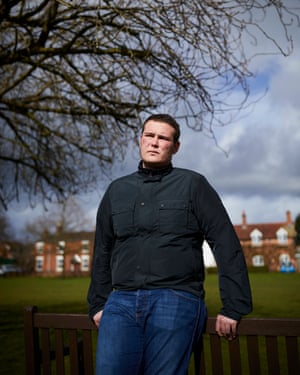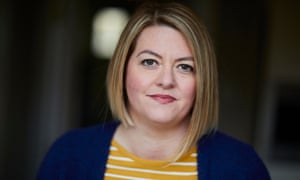It was a club that didn’t really want any new members.
When the Covid-19 Bereaved Families for Justice group first asked the prime minister to launch a public inquiry into the UK’s pandemic response last June, 450 grieving families were involved.
Now, as it pushes once more against the government’s refusal to mount an investigation, the second wave of the pandemic has swollen its ranks to over 2,800.
They thought they had a good case based on the impact of Covid-19 in the UK in the first wave last spring, when lockdowns came later than many hoped, care homes were far from protected and test and trace struggled. The winter wave, which resulted in a higher peak of deaths this January than last April, has cemented their conviction.
Alex Barrett from Stoke and Saleyha Ahsan from Wales are two of the new cohort who fear they lost their fathers to coronavirus in January because of the government’s policy over social mixing around Christmas which lurched from laissez-faire to lockdown.
In the group’s private Facebook networks, where members support each other through grief at all hours of the day and night, they have joined veterans of the campaign, such as Shiplu Hadi, whose father died in April.
“When my dad died 5,000 people had died and now there’s 125,000,” Hadi said. “That’s absolutely ridiculous. How have we got this far?”
The group’s membership, however, is just a fraction of the UK’s hundreds of thousands of children, siblings, spouses and friends likely to have questions about how the UK’s handling the pandemic may have contributed to the loss of their loved ones.

Alex Barrett’s father, Ken, 62, was one of 1,134 people to die with Covid in the UK on 11 January. He died after nine nights on a ventilator at the Royal Stoke hospital.
“It was absolutely heartbreaking,” Barrett said. He pointed to the prime minister’s mixed messaging over Christmas: urging the country to have “a jolly little Christmas”, which Barrett fears allowed people to mix and increased infection, before a lockdown was finally ordered.
“When the prime minister stands there on TV and says you could initially have five days and then drops it down to a day, people are going to take action into their own hands after a year of not seeing family and that will have caused people dying,” Barrett said.
“In the time of a pandemic when you are looking towards the prime minister for advice, that was very dangerous play and he did it for popularity. My dad watched the news avidly and would be wanting answers for this.
“It’s important for our family and other families. The grieving process has been affected enough by Covid, with limited funerals and this is just another thing they are not allowing us to do by not giving us an inquiry.”
Saleyha Ahsan, a hospital doctor in Wales, spent several “brutal, exhausting” days by her father’s bedside in hospital in east London in full PPE nursing him until he died on 28 January, as the new more transmissible and deadly variant of the virus reached its peak circulation.
The government’s erratic messaging over whether people could gather at Christmas is also high on her agenda.
“You do not need to be a professor of epidemiology to chart … the week before Christmas when everyone was going out about Christmas shopping to the spike that happened afterwards,” she said. “That was avoidable and that was the wave that got my dad.”
“This wasn’t a tsunami, this wasn’t an earthquake, this wasn’t a meteorite from the sky that just hit us,” she said. “This was avoidable … I feel something wrong has happened and I want justice for my dad and for my family.”
“If the government is serious about our mental health, those that have suffered in isolation, those that have suffered loss, the mental health of healthcare workers, then this inquiry is a massive part of that recovery,” she added. “That’s not going to fix it but that’s the start.”

Kathryn de Prudhoe suffered grief in both waves. The psychologist was one of the group’s early joiners after her father, Tony, 60, died in April. She was then bereaved a second time in November when her uncle, Tony’s brother, also succumbed. He was 57.
“This independent judge-led public inquiry looks like the only route … for bereaved families to give evidence; our stories [to] be heard,” she said.
Youssef El-Gingihy, a doctor, lost his father who appeared to have been infected by another hospital patient after he was admitted for anaemia in January.
“He was my hero,” he said. “He was the greatest man I’ll ever know personally. He mapped out the contours of my universe. He kind of created my soul, it feels, so it was very difficult not to be there to comfort him, to hold his hand.”
El-Gingihy believes there has been “extensive mismanagement of the pandemic at every stage” causing deaths.
“Each of the 130,000 that have died, and counting, has a rich human story that means the world to their family.”
Jo Goodman, the co-founder of the group, who lost her own father, Stuart, 72, in April said: “PPE, care homes, lockdown timings, test and trace – there are so many questions that need answers. Only a proper inquiry can provide those answers: a statutory public inquiry that’s independent and led by a judge.
“The prime minister has promised an inquiry, but he seemed to miss it off his roadmap around reopening pubs.”
